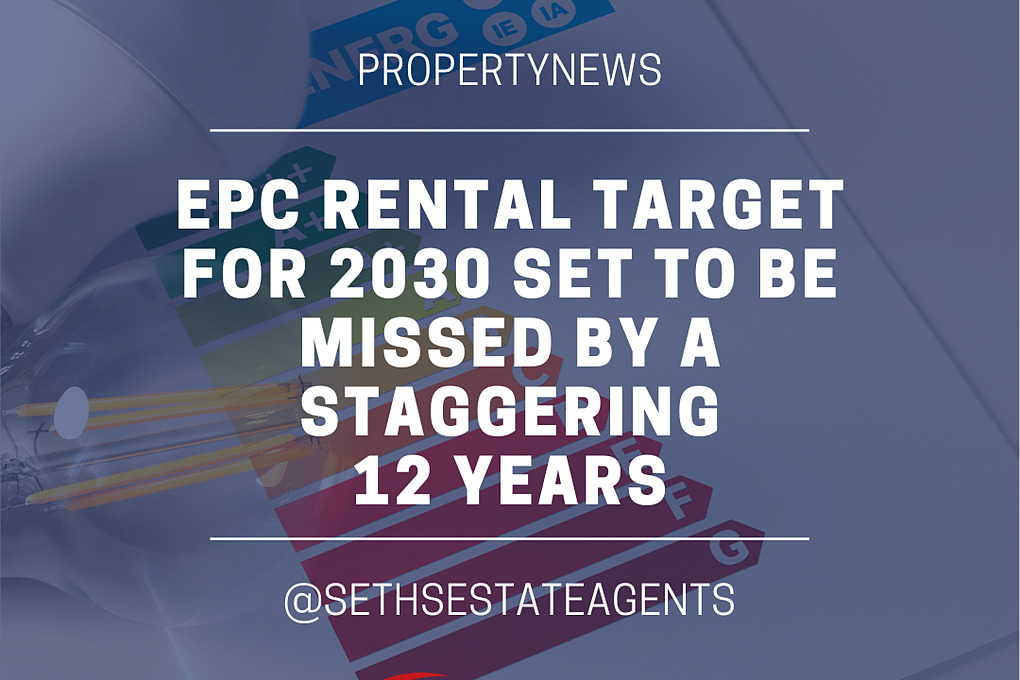EPC Rental Target for 2030 Set to Be Missed by a Staggering 12 Years

- Aug 14th 2024
The ambitious target to upgrade all private rental properties in the UK to an Energy Performance Certificate (EPC) rating of C or above by 2030 is likely to fall shorty a significant margin. According to recent research, it may take an additional 12 years, pushing the completion date to 2042, for all rental homes to meet this standard.
This projection comes in the wake of evolving government policies and fluctuating political commitments. Initially, the Conservative government had proposed raising the energy efficiency requirements, mandating that all private rental homes achieve at least an EPC rating of C. However, these plans were abandoned in 2023, leading to uncertainty in the market.
In a recent development, Ed Miliband, the new Energy Security and Net Zero minister, announced that the government would be reinstating these targets. The goal remains to have all private rented properties reach an EPC C rating or better by 2030. But the data suggests that achieving this target within the proposed time frame is increasingly unlikely.
So far in 2024, 39% of rental properties that underwent an EPC assessment managed to move into a higher energy efficiency band. Although this is an improvement over long-term averages, it still lags behind the rates observed in the years leading up to 2018, when the minimum EPC requirement of E was introduced. The slower pace of upgrades raises concerns about the feasibility of the 2030 target.
To meet the proposed deadline, approximately 340,000 rental homes would need to undergo energy efficiency improvements each year until 2030. However, projections for 2024 suggest that only around 115,000 homes will achieve the necessary upgrades to reach an EPC C rating. This indicates that the current rate of progress would need to triple to stay on track for the 2030 goal.
Despite these challenges, there has been some positive movement. In 2024, over half (55%) of all privately rented properties that received a new EPC certificate achieved a C rating or better, slightly outpacing the 48% of owner-occupied homes that did the same. The majority of these improvements were seen in properties moving from a D rating to a C rating. Specifically, half of the homes previously rated D successfully achieved a C rating upon reassessment, while 29% of homes with an initial E rating managed to climb to a C or above.
On the other hand, only a small fraction (9%) of properties that were initially rated C improved to a B rating or higher. This suggests that while incremental improvements are occurring, the leap to the higher bands remains challenging.
Interestingly, the data also reveals that 39% of homes reassessed in 2024 found themselves in a higher EPC band, 48% saw no change, and 13% actually dropped into a lower band. This variability highlights the complexities of upgrading the existing housing stock to meet modern energy efficiency standards.
One of the more significant findings from the data is that 3-4% of rented homes may be unable to achieve an EPC rating of A-C, based on the assessments carried out this year. Although this figure is lower than the 7-8% reported before mid-2022, due to changes in the EPC methodology, it underscores the challenges facing some properties. The updated methodology reduced the assumed environmental impact of electrical appliances, which has, in some cases, helped homes heated by electricity rather than gas move into higher EPC bands. However, it also means that EPC ratings produced before 2022 might be subject to change.
In summary, while there has been some progress in improving the energy efficiency of rental properties, the pace is far too slow to meet the 2030 target. Without a significant acceleration in upgrades, the goal of all rental properties achieving an EPC rating of C or above by 2030 appears increasingly out of reach, with the actual target likely being delayed until 2042.








